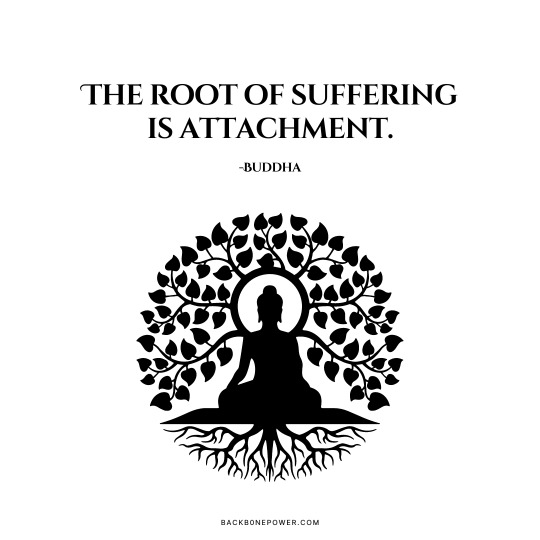#non-attachment
Text
The thing that occurs to me after reading all of these posts discussing fans' lack of familiarity with Eastern values and philosophies as part of the reason why the Jedi are so misunderstood and hated, is that it doesn't seem that unfamiliar at all actually.
Once I understood the general concept behind non-attachment, it started to become apparent just about everywhere. Star Wars obviously takes it to certain extremes to make a very insistent point (don't burn down the entire world and/or murder children in order to save just one person), but the basic idea of letting go is in SO MUCH Western media.
It isn't always about letting go of a person, either. Sometimes it's letting go of a selfish ambition, or a dream the character is clinging to because they've had it since they were a child, or a place. There is SO MUCH "letting go of fear and not letting it control you" or recognizing that being brave or courageous doesn't mean not being scared.
Think about Princess Diaries which literally states out loud that "bravery doesn't mean the absence of fear, but merely that something else is more important."
Think about Tangled where the characters both have to give up their prior "dreams" to save each other selflessly and it's that selflessness that allows them to succeed. The Princess and the Frog has a similar concept.
Think about the recent Dungeons and Dragons movie where the main character's desire to bring back his dead wife inadvertently causes harm to his daughter and he has to let go of his attachment to her by the end of the film in order to repair his relationship with his child and save his friend.
Once you understand the message being sent by the Jedi's values and philosophies, you'll literally see it just about everywhere in Western media. Their values aren't so far from our own, they're honestly quite similar. The messages Star Wars is sending through the Jedi are messages that a LOT of other Western media has been sending for ages, it's just packaging it a little differently with some slightly unfamiliar wording.
#jedi#attachment#non-attachment#star wars#pro jedi#jedi culture respected#jedi culture appreciated#jedi appreciation
323 notes
·
View notes
Text
"All your seriousness is about sandcastles. And you yourself will leave them one day, trampling them down, and you will not look back."
Osho
212 notes
·
View notes
Text

Though I have found that I have spent a lot of time in survival mode, I am still figuring out my thoughts on non-attachment after having looked at a couple of different perspectives on it. It's not really a concept I fully believe in, but at the same time, I don't fully understand it either.
Source: SourceMessages
#healing#recovery#growth#life#living#progress#spirituality#spiritual awakening#non-attachment#good vibes#good feelings#emotions#people#relationships#embrace#expansion#awareness#self-awareness#self-help#self-love
38 notes
·
View notes
Text
Lost in Zen: Navigating the Path to Inner Peace
Introduction
In today's fast-paced world, where chaos and distractions seem to be the norm, finding inner peace has become a coveted goal for many. The journey to inner peace often leads individuals to explore various practices and philosophies. One such path is the practice of Zen Buddhism, which offers a unique and profound way to navigate the complexities of life while seeking tranquility. In this blog, we'll delve into the concept of being "Lost in Zen" and how it can guide us towards a more peaceful existence.
Understanding Zen
Zen is a branch of Mahayana Buddhism that originated in China and later spread to Japan, where it became most prominent. At its core, Zen is about direct experience and intuitive understanding rather than relying on conventional knowledge or intellectual concepts. It emphasizes the importance of meditation, mindfulness, and living in the present moment to achieve enlightenment or "Satori."
The Paradox of Being Lost in Zen
Being "Lost in Zen" might initially sound counterintuitive. After all, we often associate being lost with confusion and disorientation. However, in the context of Zen, it means letting go of the mental clutter and distractions that keep us disconnected from our true selves and the present moment. Zen encourages us to lose ourselves in the moment, shedding the ego, and experiencing reality as it is, unfiltered.
Key Principles of Zen
Mindfulness: Zen teaches us to cultivate mindfulness, the practice of paying full attention to the present moment without judgment. By doing so, we can break free from the constant mental chatter and worries that often plague our minds.
Meditation: Meditation is a cornerstone of Zen practice. Through meditation, we learn to quiet our minds and observe our thoughts and emotions without attachment. This leads to greater self-awareness and a deeper connection with our inner selves.
Simplicity: Zen advocates for a minimalist and simple lifestyle. By decluttering our physical space and simplifying our lives, we create a conducive environment for inner peace to flourish.
Non-attachment: Zen teaches us to let go of attachments to material possessions, desires, and even our own self-concept. By relinquishing our clinging nature, we free ourselves from suffering and experience greater equanimity.
Practical Steps to Get "Lost in Zen"
Start with meditation: Begin a regular meditation practice to quiet your mind and connect with your inner self. Even a few minutes each day can make a significant difference.
Embrace mindfulness: Practice mindfulness in your daily activities. Pay attention to your breath, the sensations in your body, and the sights and sounds around you as you go about your day.
Simplify your life: Declutter your living space and let go of unnecessary possessions. Simplifying your life can lead to greater mental clarity and a sense of liberation.
Let go of attachments: Reflect on your attachments and desires. Are there things or ideas you're clinging to that cause suffering? Practice letting go and accepting things as they are.
Seek guidance: Consider joining a Zen meditation group or seeking guidance from a Zen teacher. Learning from experienced practitioners can deepen your understanding and practice.
Conclusion
Being "Lost in Zen" isn't about losing your way in life; it's about losing the distractions and attachments that keep you from experiencing true peace and clarity. By embracing the principles of Zen—mindfulness, meditation, simplicity, and non-attachment—you can embark on a transformative journey toward inner peace. Remember, the path to Zen is a lifelong journey, and each step brings you closer to a more meaningful and tranquil existence in our hectic world.
#Zen Buddhism#Inner Peace#Meditation#Mindfulness#Zen Philosophy#Simplify Your Life#Non-Attachment#Finding Tranquility#Zen Meditation#Letting Go#Self-Awareness#Present Moment#Zen Practices#Minimalism#Zen Lifestyle#Zen Teacher#Mindful Living#Enlightenment#Satori#Zen Wisdom#today on tumblr
7 notes
·
View notes
Text
The Divine Dance of Non-Attachment
A Journey Beyond SelfIn the quietude that envelops the soul’s journey, there lies a profound realization, a moment that transcends the confines of the self and ushers us into the boundless realm of non-attachment. This is not merely an act of letting go but a sublime embrace of a state of being where one is liberated from every iota of personal existence. It is a passage through the eye of the…

View On WordPress
#Consciousness#Existential Freedom#liberation#Non-Attachment#Oneness#Self-realization#spiritual awakening#Universal Connection
3 notes
·
View notes
Text
Arjuna's Arrows
The Bhagavad Gita is the most famous segment of the Hindu epic the Mahabharata. It is a dialogue between Arjuna, a warrior prince and a great archer, and Krishna, an incarnation of Vishnu in disguise as Arjuna’s chariot driver.
The conversation takes place before a climactic battle. The entire epic story of the Mahabharata concerns the conflict between the Pandavas– Arjuna and his brothers– and…
View On WordPress
#aleister crowley#bhagavad gita#eternal return#karma yoga#Lucifer#Nietzsche#non-attachment#satanism#thelema#yoga
7 notes
·
View notes
Photo

The root of suffering is attachment. -Buddha
3 notes
·
View notes
Photo

Your attachments are all impermanent. So where will you be when they all leave you?
I am Krishna's -Srila Prabhupada
https://youtube.com/shorts/piwrRzvGSrU?feature=share via @YouTube
3 notes
·
View notes
Text
To think that working on oneself requires “dropping-out” of society is to miss the point. Certainly you must drop out . . . but the drop-out is internal, not external. One drops out of one’s attachments; one drops out of one’s identification with the illusion of separateness.
-Ram Dass
8 notes
·
View notes
Video
youtube
Obiwan comes to Naboo and meets an elusive handmaiden. Will the love triumphs?
4 notes
·
View notes
Text
let it go – the // e.e. cummings
let it go – the
smashed word broken
open vow or
the oath cracked length
wise – let it go it
was sworn to
go
let them go – the
truthful liars and
the false fair friends
and the boths and
neithers – you must let them go they
were born
to go
let all go – the
big small middling
tall bigger really
the biggest and all
things – let all go
dear
so comes love
#poetry#e.e. cummings#love#dialectics#letitgo#loving the world anyway#non-attachment#release#freedom#romance#break free
4 notes
·
View notes
Text
learning to bicycle
addictions are nothing but a different level of attachment a level which can lead to more serious outcomes addictions extend far beyond drugs and …learning to bicycle
View On WordPress
0 notes
Text
The Path to Inner Peace: Embracing Non-Attachment
In our consumerist and materialistic world, finding inner peace can often seem like an elusive goal. The constant pursuit of external possessions, success, and approval can leave us feeling perpetually unsatisfied and anxious. However, there is a timeless concept that offers a profound solution to this modern dilemma: non-attachment. Rooted in ancient wisdom and practiced in various forms across…

View On WordPress
0 notes
Text
Sublime is the Spontaneous - Osho
There are two kinds of non-attachment: the ordinary and the sublime. That attitude of non-attachment to the objects of desire in which the seeker knows that he is neither the doer nor the enjoyer, neither the restrained nor the restrainer, is called ordinary non-attachment. He knows that whatever faces him in this life is the result of the deeds of his past life.
Whether in pleasure or in pain,…

View On WordPress
1 note
·
View note
Text
Embracing the Ethereal
The Journey Beyond AttachmentsIn the boundless quest for spiritual awakening, we often encounter the concept of ‘freedom’—a term that resonates deeply within the chambers of the soul. Yet, what is this freedom that spiritual traditions speak of with reverence? It is not the liberty of movement or choice as perceived in our physical world, but rather, an emancipation from the very chains that bind…

View On WordPress
#Consciousness#Enlightenment#Inner Journey#Inner Peace#mindfulness#Non-Attachment#Presence#Self-realization#spiritual awakening#Spiritual Liberation
1 note
·
View note
Text
Was just thinking about how I don’t seem to miss people when they’re gone, at least not the way other folks seem to. And I forget a lot of things about them as time goes by. For many years, I’ve felt like this was a flaw in my make-up, or a personal failing of some sort. But right now, I’m feeling like: how I feel or think about someone else, what’s it to do with anyone else out there, really? What harm is it doing if I don’t actively feel bad by missing someone? I dunno...
0 notes